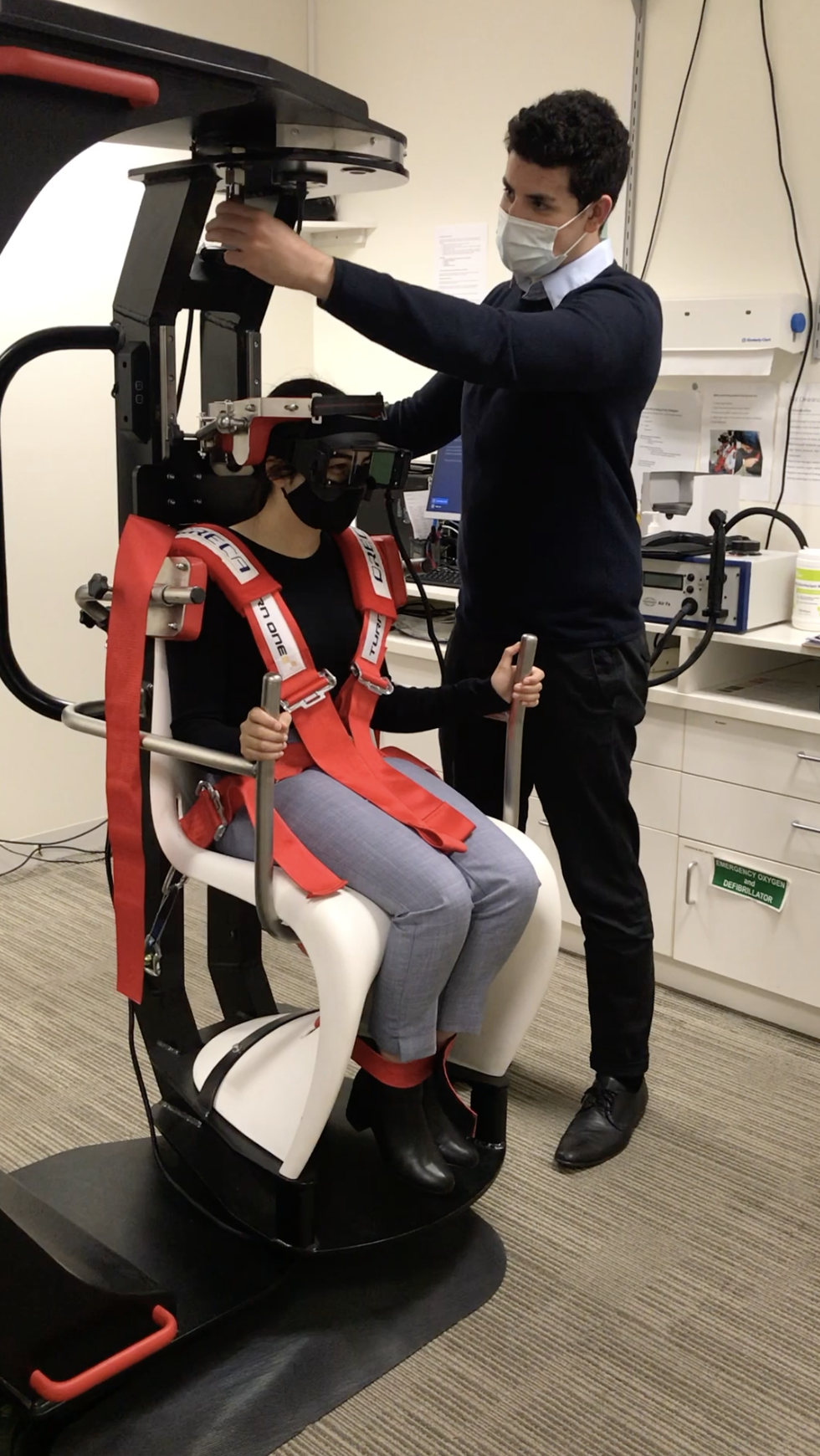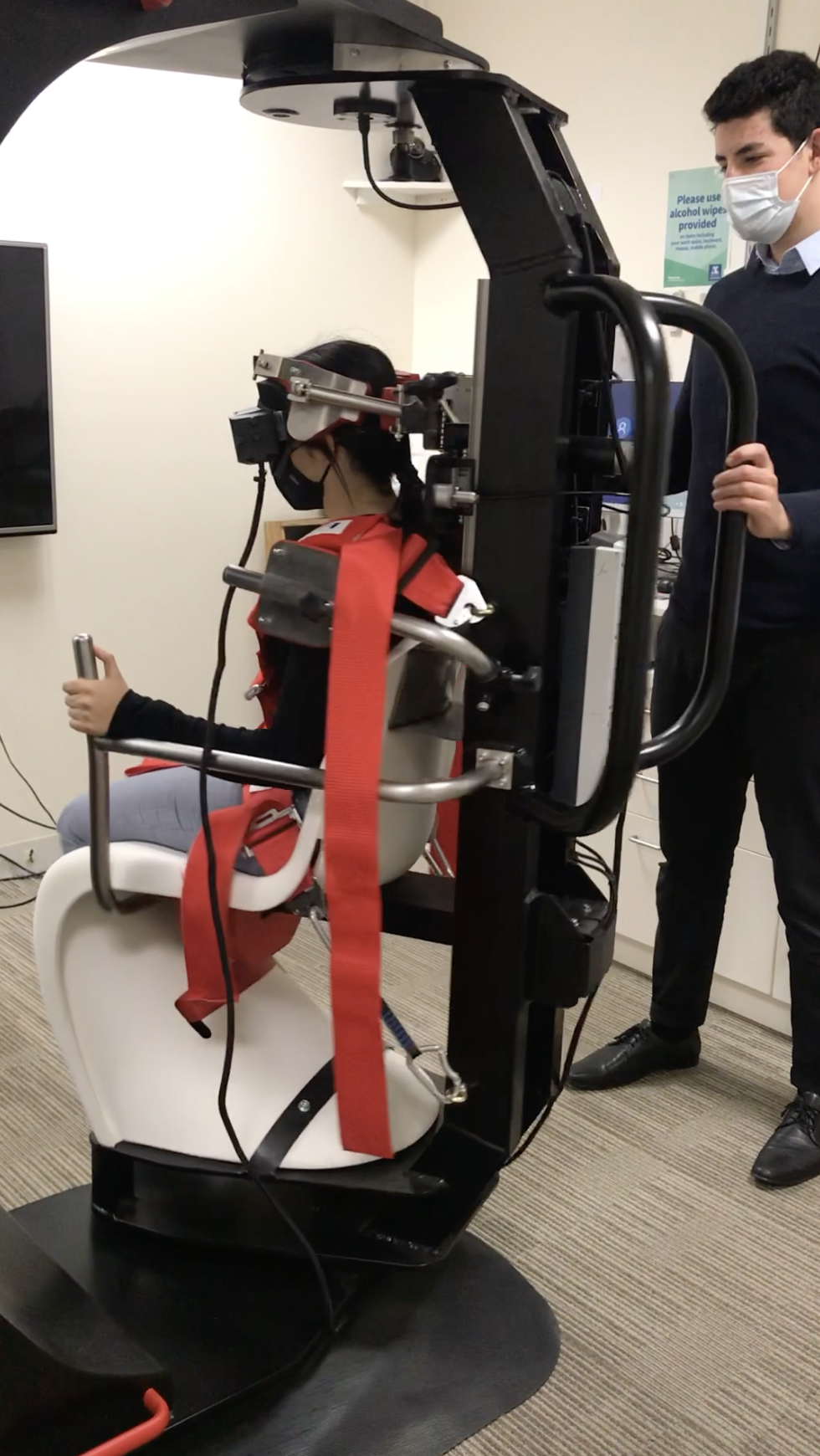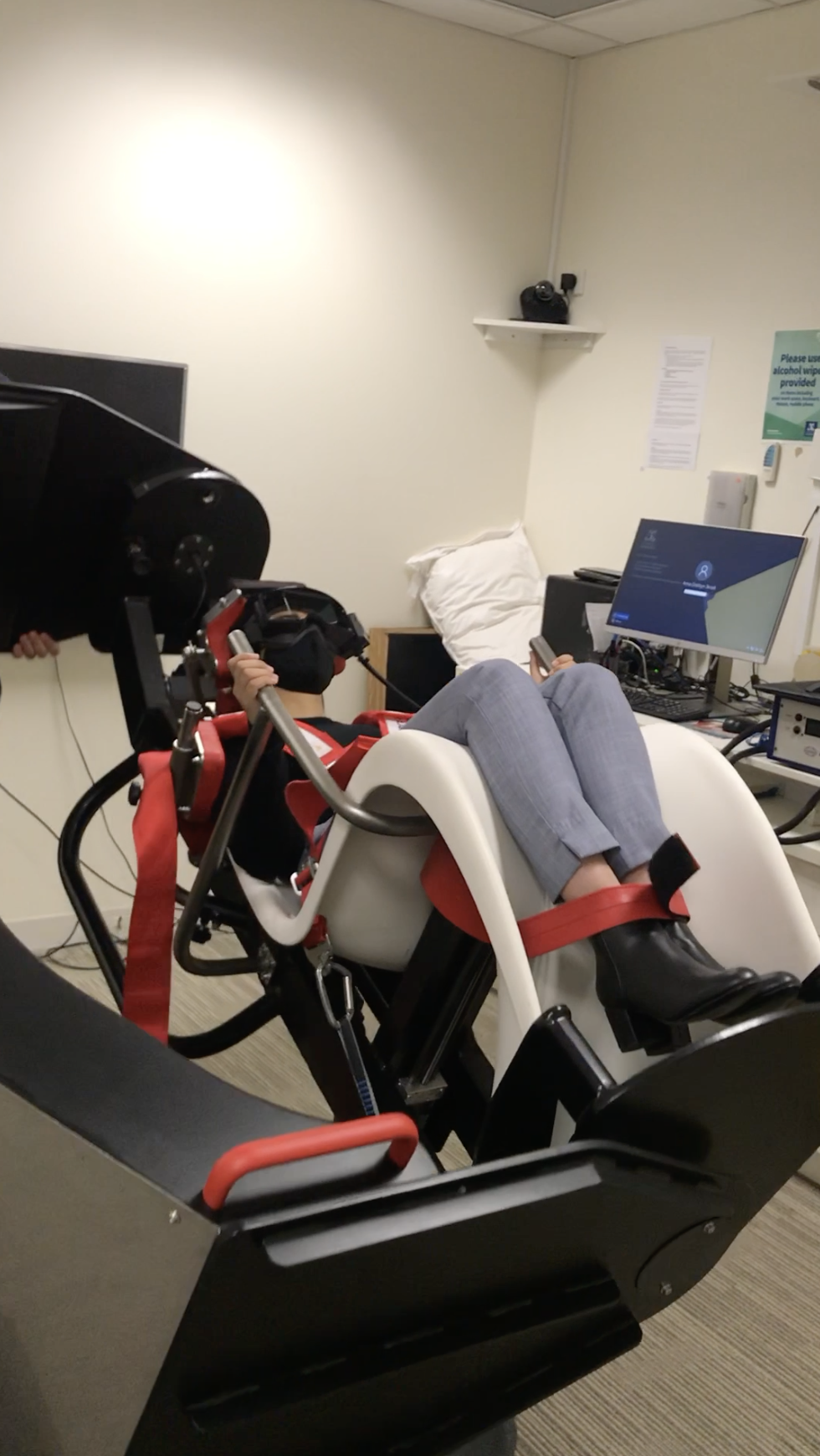Thanking our audiologists on Balance Awareness Week
While the pandemic has left us all feeling more than a little unbalanced lately, for audiology professionals at the Melbourne School of Health Sciences, dealing with a different type of imbalance is a part of everyday life. Balance Awareness Week (19-25th September) provides a great opportunity to learn more about vestibular disorders and how our Audiology clinicians at the University of Melbourne Audiology Clinic help diagnose and manage these conditions.
Unless you're an audiologist, vestibular is likely not a word you use everyday. Located in the inner ear, the vestibular system detects motion and sends signals to the brain. Alongside our eyes and sensory information from muscles and joints, the vestibular system allows us to maintain balance, steady posture and steady vision. When this system is affected, it can lead to dizziness, vertigo and nausea. Up to 30% of adults experience balance difficulties at some point in their lifetime.
Donella Chisari from the Department of Audiology and Speech Pathology is an expert in vestibular disorders.
“For people with balance difficulties, assessment of the inner ear balance organs can provide useful information for diagnosis and management,” she says.
“Our Audiology Clinic has specialised equipment to test the different components of the balance system. This includes a chair that can rotate 360 degrees - one of only a few in the southern hemisphere. The rotating chair is particularly useful for assessing people with mobility issues. Audiology students are also actively involved in the clinical appointments and gain an insight into the diversity of audiology practice.”



Pictured: Patient uses vestibular chair device.
To learn more about our Audiology Clinic (which has continued operating throughout the COVID-19 pandemic) check out this video!